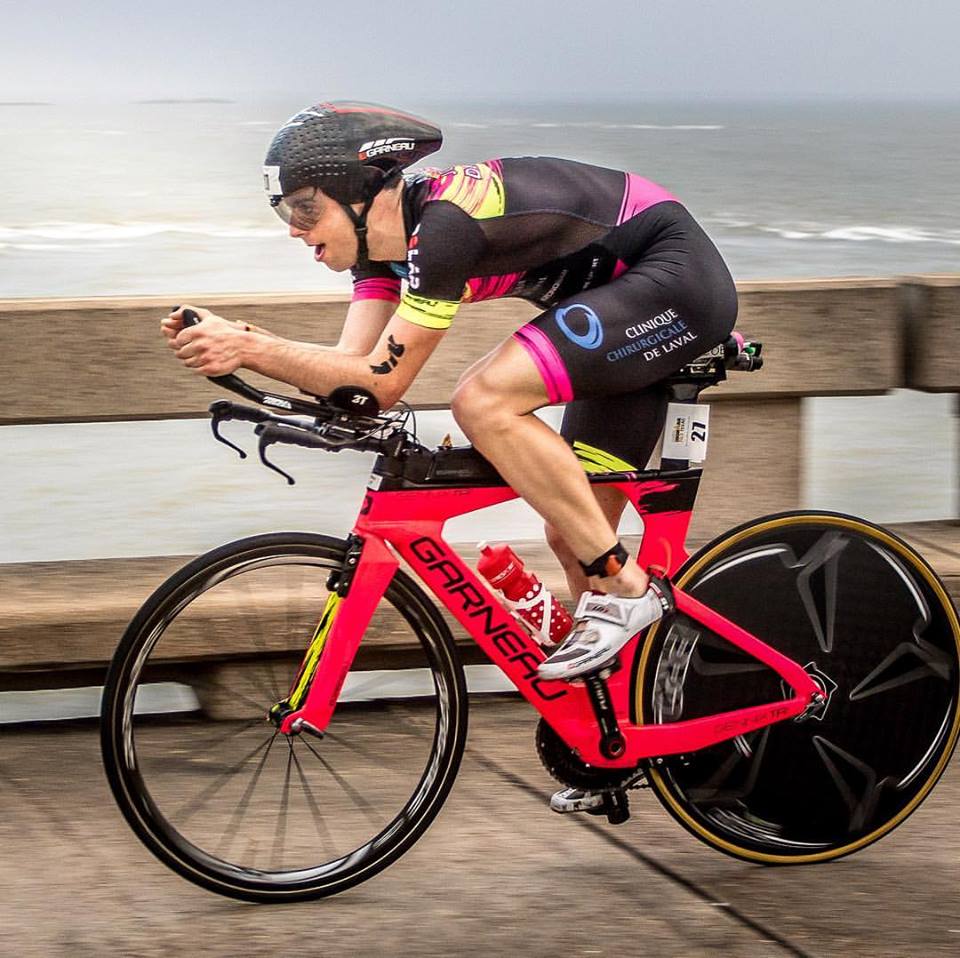Antoine Jolicoeur Desroches: Ironman 70.3 Raleigh recap and what I learned
AJD recaps his race experience at IM 70.3 Raleigh where he placed in the top 10, and which served as prep for his hometown race at the end of June - IM 70.3 Mont-Tremblant.

I was really excited to race 70.3 Raleigh because I really like the bike course, since it’s challenging but still fast. I was also eager to test myself on the bike after a good bike in 70.3 Chattanooga. However, I decided to take this race as a preparation for 70.3 Tremblant and not do a complete taper. I was therefore less rested than I usually am but still felt pretty good.
A races vs B races
Racing really often is a bit tricky because you can’t consider each race as an A race. You need to pick a few races as your most important races and consider the other races as a B race or a preparation race. You can still push yourself to your limit in your B races and even have a good result, but you won’t be at your 100%. Those races are perfect to try out new pacing or nutrition strategies, new equipment or a new bike position.
Make the most of your strength
I felt good on the swim and led from the start but wasn’t able to break away from the big contenders. However, I still prefer to lead in the swims because even though I’m pulling some competitors and making them work less, I’m able to make others work harder and create a gap between them and me.
Race your own race
On the bike, I was feeling good at the beginning and tried to follow Yoder and Butterfield who caught me a few kilometres after the beginning of the bike. I was pushing over my usual power but was feeling confident (maybe too confident) and thought I could sustain that effort. After the first half, my power was already dropping and that’s when I realized that maybe I wasn’t in my best shape and that I had probably went too fast at the beginning.
I’m not saying that you should be a slave to your powermeter and never trust your instinct and your body but be conscious that you may pay the price later on the bike or during the run. However, if you never try to push your limits and take some risks on the bike, how will you know where are your limits?
A bad race is a great mental training
As soon as I started running I knew that it would be a long and painful run! My legs were already super heavy and I already felt dehydrated. The thought of dropping out was lingering in my mind and every time I would look at my watch I would become even more discouraged. However, I remembered the lecture I gave the previous weekend on mental toughness and decided that there was no way I would DNF. I decided to actually use the tips I gave in the lecture such as dividing the race in small sections, repeating a small motivating sentence in your head, thinking about all the hard trainings you have done etc. That race was a perfect experiment to try out these little hacks and I knew I would use those in many other races.
I finally “survived” the run and, even though I was disappointed of the result, I was proud to have pushed through the pain and won the battle against the “DNF thoughts” in my mind. The real battle is always in your head and every time you push your limits and don’t listen to the negative thoughts in your head you’ve won your own race and you should be proud of that!
